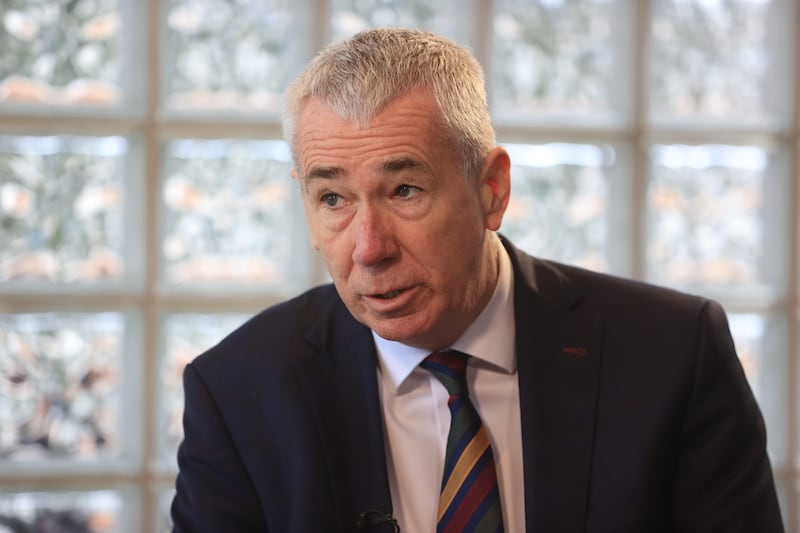UNIONISM must act immediately to calm the row that has erupted around the Northern Ireland Protocol before the atmosphere becomes further inflamed.
Responsible dialogue and the political process must be the way ahead if the difficulties around the UK leaving the EU, including the Irish Sea border, are to be resolved.
There has been too much unhelpful language in recent days, such as DUP MP Sammy Wilson's colourful description of the protocol - which is, after all, a direct consequence of the Brexit his party co-authored - as "poison".
More alarming were the words of David Campbell. Mr Campbell chairs the Loyalist Communities Council, which has the backing of the UDA, UVF and Red Hand Commando.
He said loyalists were prepared to physically fight "to maintain our freedoms within the United Kingdom".
Mr Campbell did stress that the issues around the protocol ought to be resolved in "a political fight" but nonetheless, in the context of heightened feelings around the new customs arrangements, this was a deeply unhelpful contribution.
These comments and others evoke chapters from Northern Ireland's past that should remain firmly closed and never reopened again, such as the Ulster Workers' Council strike of 1974.
Then, the creation of a febrile atmosphere by political and community leaders and the involvement of loyalist paramilitaries proved violent and deadly.
It is a depressing commentary on political progress more than 20 years after the Good Friday Agreement that paramilitaries remain active on our streets, and those in positions of influence must weigh that reality carefully when they raise the spectre of violence.
Chief Constable Simon Byrne echoed this point yesterday. Rhetoric around the Irish Sea border has become "inflammatory" and needs "de-escalated", he said.
DUP MP Jeffrey Donaldson did adopt a more conciliatory, and many would say sensible, tone than party colleagues yesterday.
He accepted that there were economic opportunities in Northern Ireland remaining in the EU single market for goods.
The majority of voters in the north rejected Brexit of any sort, but taking fullest advantage of this unique status is the only productive way forward.
There are undoubtedly difficulties with the protocol. Some will be teething problems and others will be capable of being corrected through the proper channels, including the EU-UK Joint Committee.
Mostly, however, they are the obvious and unavoidable consequence of Brexit itself. Honest acceptance of that reality, rather than deflection which may prove dangerous, is now necessary from the unionist politicians who facilitated it.







